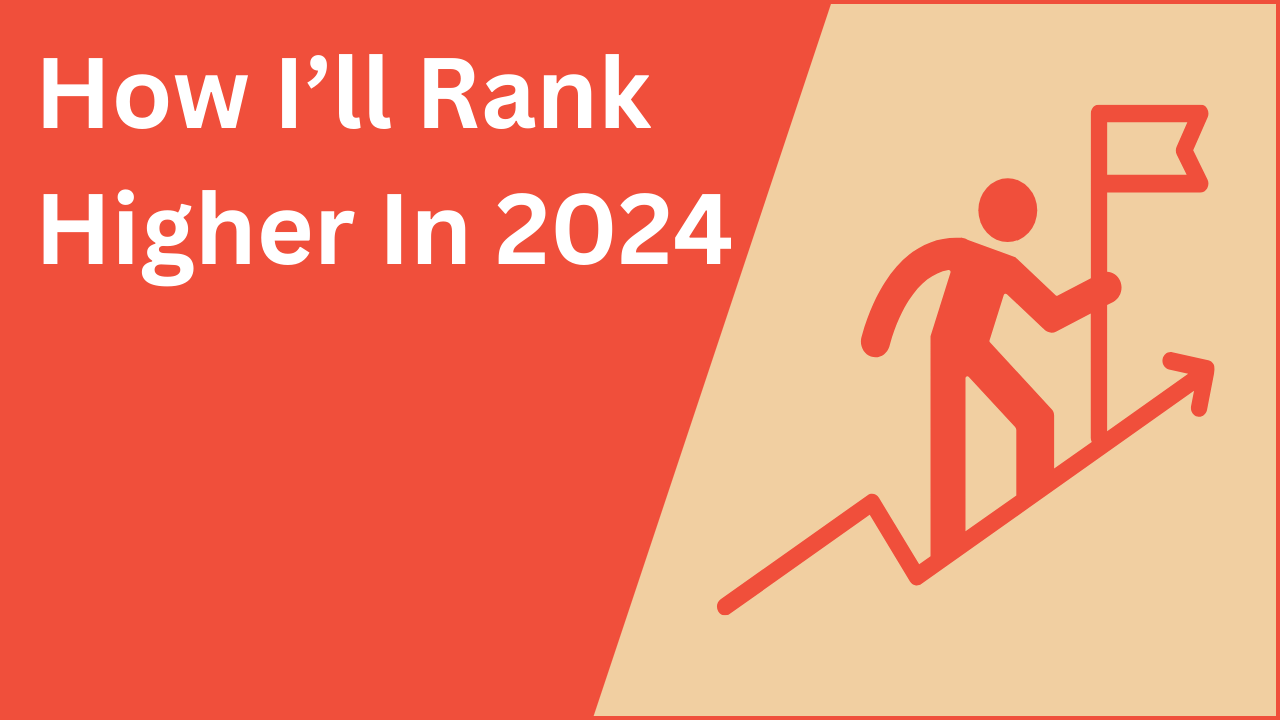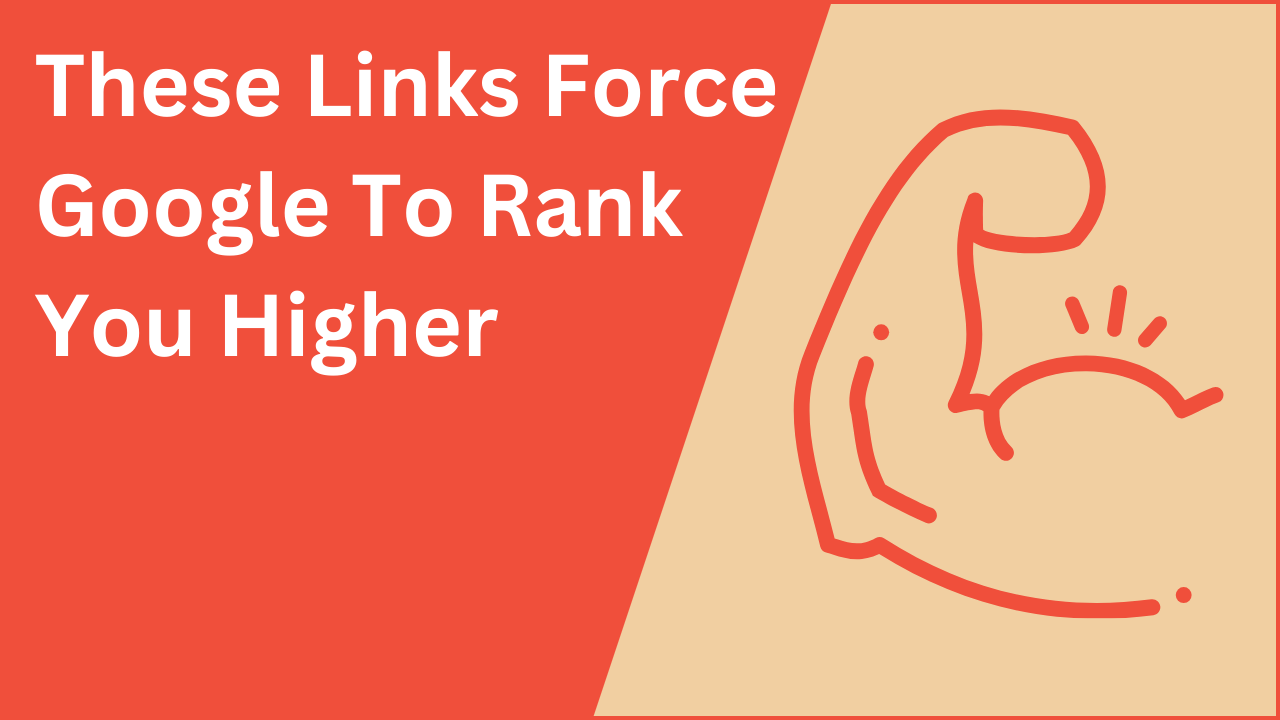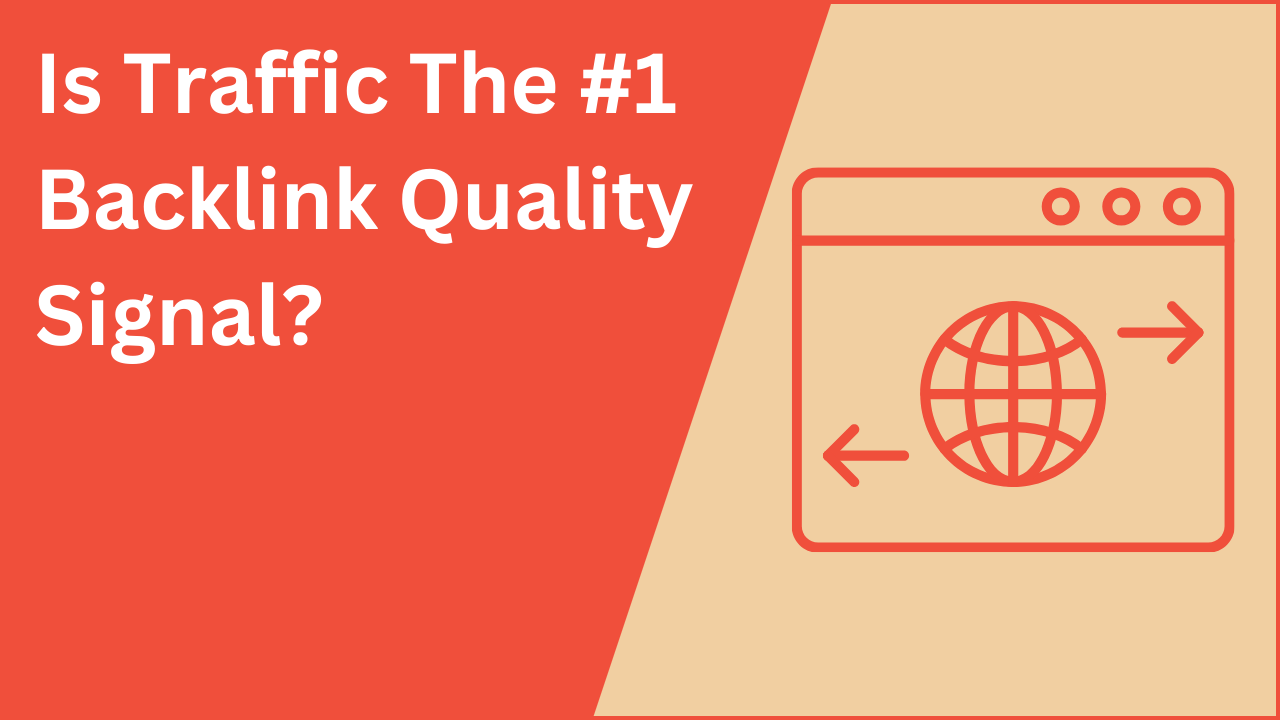SEOs after 2023 be like…

Yep, it’s been a bumpy, unpredictable, and downright worrying year.
I’m sure it’s all seared into your memory, but to recap, we’ve had:
- The “product review” updates earlier this year
- An AI content explosion
- SGE looming over horizon
- The “helpful content” update
- Parasite SEO stealing all your keywords
It’s been a rough year, but honestly nothing new in the world of long term SEO.
Sometimes you gotta roll with the punches.
So let’s dust ourselves off, and do some gameplanning for 2024…
Pay closer attention to greyhat SEO
If someone is using a tactic to rank higher, I want to know about it.
I don’t care if it’s whitehat, blackhat, or whatever-the-fuckhat.
Here’s why: It teaches me something about how the Google algorithm works right now.
Whether I’d use the same tactics myself or not is irrelevant.
The point is to gather as much information as possible, to help design my own strategy.
The hot greyhat tactic right now is parasite SEO, where you leverage the high authority of a big site to rank a page for very competitive keywords.
For example, you pay for a sponsored post on a DR80 site and target a highly valuable keyword with an article that contains your affiliate links. You benefit from the high authority of the site, and the page ranks easily.
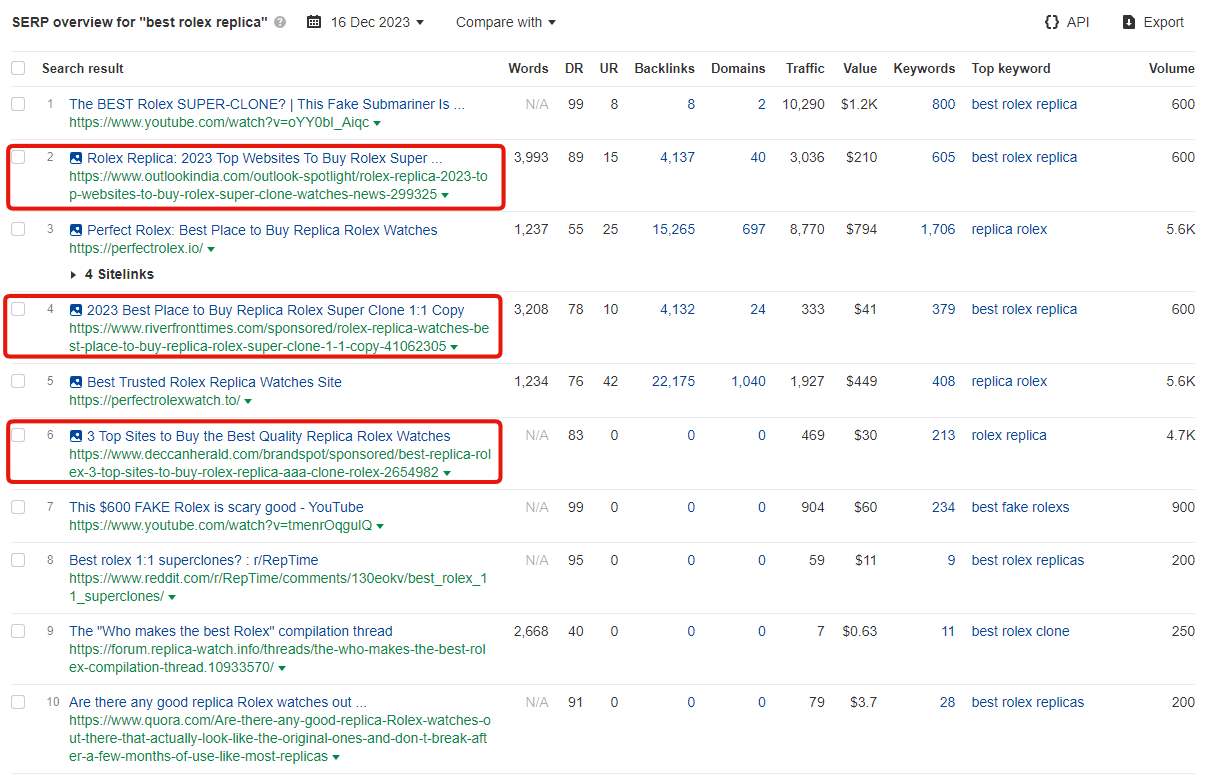
This thread by Charles Floate gives a ton of examples.
He’s one of the best sources to keep on top of this tactic, along with Jacky Chou.
Why this is useful
I’m not suggesting you do parasite SEO yourself (although maybe you should).
The point is that this stuff is currently working very well, so it’s at least worth knowing about.
We can draw a few ideas from it:
1: Links are a powerful ranking factor
That’s why these high authority sites can rank for competitive keywords which have nothing to do with their core topics.
2: “Just create helpful user-first content” seems like bad advice
More like “just create shitty parasite pages on big sites to rank within 24 hours”.
3: Google are in a tough spot
There’s a flood of generic AI content pounding their index. They can’t differentiate good from bad content, so they’re left to rely more heavily on other signals like links… Which then opens the door to stuff like parasite SEO.
The goal of SEO is to please the ultra-complex math problem that is the Google algorithm.
This stuff gives you insights into how that works.
So pay attention, draw your own conclusions, and factor those into your strategies.
Focus on EEAT and topical authority
Honestly, there’s a lot of chatter about both of these topics lately.
And most of it is unnecessarily complicated or not beneficial.
Here’s how I’ve summarised this stuff for myself…
Google has become pretty good at two things:
- Identifying your brand as an “entity”, with associated trust and expertise scores
- Understanding how thoroughly your site covers a topic
I believe both of these things are significant parts of the algorithm, as evident from looking through SERPs.
So, naturally, you should come up with a plan to game these ranking factors.
For branding and EEAT I’d suggest this Authority Hacker video.
Link building is also important for EEAT, as Google staffer Gary Illyes has stated… EEAT is “largely based on links”.
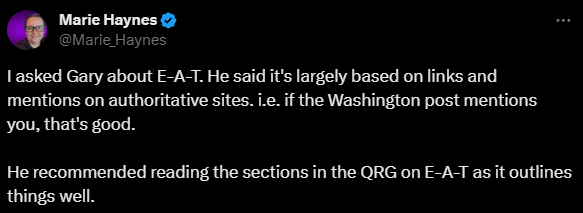
And for topical authority… Just map out all the topics in your industry, and make sure you cover them with articles on your site.
In my opinion, this topical authority stuff is just an extension of the “content silo” tactic which has been effective over the last few years.
Build more links
Yeah yeah, the link building guy is advising you to build more links.
But leave that aside and just think about the first point above about parasite SEO…
The ENTIRE reason that works is because those sites have tons of links and authority.
Links have always been a major ranking factor. But in the current iteration of the algorithm, they’re clearly more important and impactful than ever.
You don’t need to get fancy – Outreach and guest posting still work well, when done right.
Just be aware that many/most links from popular services are pretty low quality, so you gotta have a solid quality vetting process in place.


